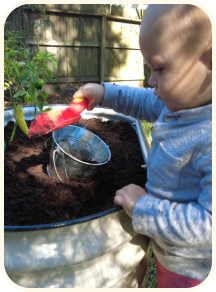Nourishing Your Garden: A Guide to Soil Amendments
Soil amendments play a crucial role in enriching and balancing soil, providing essential nutrients, improving drainage, and promoting overall plant health. However, with a multitude of options available, selecting the right soil amendments can be overwhelming.
In this guide, we'll explore various types of soil amendments and provide insights to help you choose the ones best suited for your garden's needs.
Soil amendments are substances added to the soil to improve its physical properties, structure, and fertility. They can be organic or inorganic and come in various forms such as compost, manure, peat moss, perlite, vermiculite and more. Each amendment serves a specific purpose, whether it's enhancing nutrient content, adjusting pH levels or improving soil structure.
Before choosing soil amendments, it's essential to understand your soil's composition and its specific requirements. Conducting a soil test is the most effective way to determine its pH levels, nutrient content, and texture. This information will guide you in selecting the appropriate amendments to address any deficiencies or imbalances.
Common soil amendments and their benefits
Compost: Compost is a nutrient-rich organic matter that improves soil structure, enhances moisture retention, and promotes microbial activity. It provides a balanced blend of essential nutrients and helps maintain optimal pH levels. Incorporating compost into the soil boosts fertility and supports healthy plant growth.
Manure: Animal manure, such as cow, horse or poultry manure, is a valuable source of organic matter and nutrients. It enriches the soil with nitrogen, phosphorus, potassium, and other essential elements necessary for plant growth. However, it's crucial to use well-aged or composted manure to avoid potential weed seeds and pathogens.
Peat Moss: Peat moss is a lightweight organic material that improves soil structure and water retention. It is particularly beneficial for sandy soils, helping them retain moisture and nutrients. Peat moss also slightly acidifies the soil, making it suitable for acid-loving plants like azaleas and blueberries.
Perlite and Vermiculite: Perlite and vermiculite are lightweight, sterile minerals used to improve soil aeration and drainage. They prevent soil compaction and facilitate root development by creating air pockets within the soil. Perlite enhances drainage, while vermiculite improves moisture retention, making them ideal amendments for potting mixes and container gardening.
Lime and Sulfur: Lime and sulfur are inorganic amendments used to adjust soil pH levels. Lime raises pH, making acidic soils more alkaline, while sulfur lowers pH, making alkaline soils more acidic. Maintaining the proper pH range is essential for nutrient availability and overall plant health.
When selecting soil amendments for your garden, consider the following factors: soil type, plant requirements, environmental impact, and application methods.

Different soil types have distinct characteristics and may require specific amendments. For example, clay soils benefit from amendments that improve drainage and aeration, such as compost and perlite. Sandy soils may need amendments like compost and peat moss to enhance moisture retention and fertility.
Different plants have varying nutrient and pH preferences. Research the specific needs of the plants you intend to grow and choose amendments that meet those requirements. For example, acid-loving plants like rhododendrons and camellias thrive in acidic soil amended with peat moss or sulfur.
Consider the environmental implications of your chosen soil amendments. Opt for organic amendments like compost and manure, which promote soil health and sustainability. Minimize the use of synthetic or chemical amendments to reduce environmental pollution and protect beneficial soil organisms.
Determine the most effective application method for your chosen amendments. Some amendments, like compost and manure, can be incorporated into the soil before planting or applied as top dressing around established plants. Others, such as lime and sulfur, should be evenly distributed and thoroughly mixed into the soil.

Choosing the right soil amendments is essential for maintaining healthy, productive gardens. By assessing your soil's needs, understanding the benefits of different amendments, and considering factors such as soil type, plant requirements, and environmental impact, you can make informed decisions that promote optimal soil health and plant growth.
Whether you're enriching the soil with compost, adjusting pH levels with lime or sulfur, or improving drainage with perlite and vermiculite, investing in quality soil amendments is key to nurturing a thriving garden ecosystem.


























































































Leave a comment